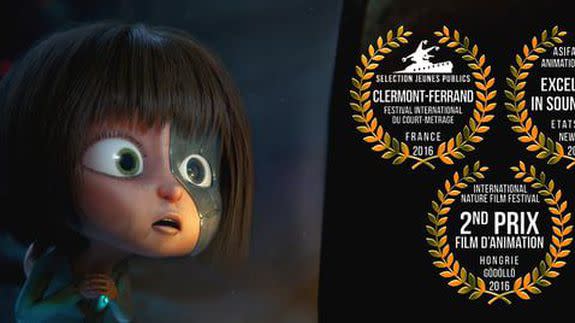'Voyager' animated short warns against a tech-obsessed future

The best science fiction mixes unlikely events with reality in ways that make us ask big questions, and in the case of Voyager, the film brought a tear to my eye. Yes, really.
Written and directed by France-based Loïc Magar and Roman Veiga, the short 3D animation-meets-stop motion film tells a story in which the real Voyager space probe returns to a future, dystopian Earth.
NASA sent the real Voyager 1 and 2 probes into space back in 1977. They carried 12-inch golden records containing sounds and images from Earth as documents in case the probes were discovered by another civilization.
In the film, one probe lands back on Earth and is discovered by a 7-year-old girl of the future who has embedded technology as a central part of her life. After playing the record, the character goes through a transformation that is best seen rather than described.
Sure, the tech and science aspects of the award-winning short don’t hold up to scrutiny, but the film's central message — in the face of tech advances, don't neglect nature and our humanity — resonates. It's shorter than 10 minutes, it's a must watch, and it will definitely make you rethink wandering around like a zombie staring into your smartphone.
Three superheroes go head-to-head in a homemade 'Avengers' scene
Kate McKinnon's jokes destroy Margot Robbie on 'SNL'
Larry David brings Bernie Sanders back to 'SNL' in a Trump campaign showdown
Margot Robbie blows minds on 'SNL' as a sexy librarian gone very wrong

 Yahoo News
Yahoo News 